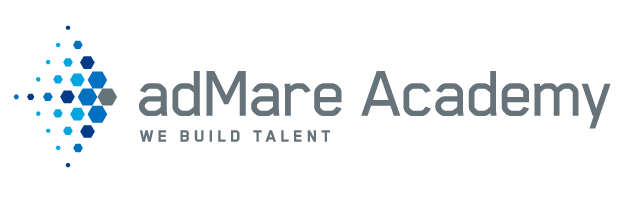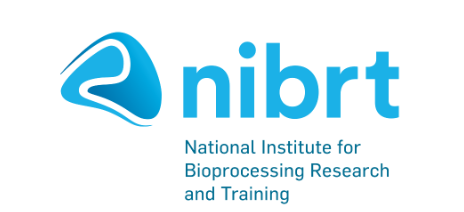
In the picture, Lobna Eltaher and John Storrie, CASTL Biomanufacturing Trainer
When Lobna Eltaher enrolled in CASTL’s Reskilling program in January 2024, all the pieces for her next chapter started falling into place.
“I had been dreaming about a program like this,” she says. “And it came to me just at the right time.”
Until then, Lobna had been out of the workforce for more than a decade. Soon after their marriage in 2012, she and her husband, Ibrahim, relocated from Egypt to PEI for his Ph.D. studies at the University of Prince Edward Island (UPEI).
“My life started when we came to Canada—when we started our family,” she says.
For the next twelve years, Lobna was committed to raising their three children.
“Being a mom was my first priority,” she said. “And in a new place and in a completely new culture without the support of extended family, it was a full-time challenge.”
But after her third child was born, Lobna was ready to start exploring ways to restart her career outside the home. Prior to coming to Canada, she had completed a Bachelor of Veterinary Medical Science (BVSc.) and had worked as a lab assistant at both a veterinary hospital and a large-scale dairy operation.
“I enjoyed working in a lab environment, and I was eager to pursue a career in that area.”
But re-entering the workforce was a daunting idea. First, after leading a somewhat sequestered life that centred on home and family, Lobna wasn’t overly confident in her language skills and grasp on the Canadian workplace culture. Second, she was afraid that she might have forgotten all she had learned from her earlier studies.
“I thought I would have to start from scratch.”
But her determination outweighed her fears. She enrolled in an English language course at Immigrant & Refugee Services Association (IRSA) PEI, where she not only got more practice in speaking the language, but also learned more about Canadian culture, customs, and practices. She also received a lot of encouragement to pursue her ambitions. As her confidence grew, so too did her excitement.
“I was full of energy and ready to do something for myself.”
It was only a couple of weeks after completing the language training—while she was actively exploring various post-secondary routes that could help her restart her career—that a friend told her about CASTL’s Reskilling program, a PEI-based, 10-week technical course designed to train participants for entry-level positions in the bioscience sector.
“I already had a degree in the sciences, so the idea of reviving my studies over two or three months—rather than years—was an ideal fit for my situation as a busy mom.”
That’s not to say that it was easy. Since Ibrahim regularly travels abroad for extended periods for his work, Lobna was tasked with balancing the needs of her family with a full-time study schedule. However, with a laser-like focus on her goal and occasional help from a neighbour, she was able to quickly adjust to the new routine and mindset.
“And once I got started with the program, I realized it wasn’t going to be as difficult as I had imagined. There was lots of new information, but I hadn’t forgotten all that earlier knowledge—I just needed to refresh it.”
Through a curriculum including lectures, lab work, and on-the-job training, Lobna found her stride.
“It was an amazing program. In addition to technical hands-on skills, the program provided a fantastic sense of camaraderie with my fellow learners and incredible support from the CASTL team.”
Following six weeks of classroom and laboratory work at CASTL’s Charlottetown Biomanufacturing Training Facility, Lobna began a four-week on-the-job (OJT) practicum with Somru BioScience, a PEI-based company that develops breakthrough antibody technology for research, diagnostic, and therapeutic applications. Immediately following her practicum, she was offered a job. She now works at Somru as a QA/QC Analyst, ensuring processes, procedures, and analyses are carried out in accordance with regulatory requirements.
“It was a smooth transition,” she says. “Everything I learned at Reskilling—GMP and GLP principles, laboratory procedures, regulations, etc.—is part of my everyday work. It’s such an advantage when what you learn in the classroom aligns to the real-world workplace.”
When asked if she has advice for others who might be considering a career in bioscience, she doesn’t hesitate: “Just apply to the Reskilling program, even if you already have a degree. Academic learning is important, but it’s the practical skills that get you hired.”
“Reskilling was a milestone for me,” Lobna says. “It completely changed my life, and I will always be grateful to CASTL for helping me achieve my goal.”
It’s fair to say that Lobna couldn’t be more pleased with her new direction in life.
“I don’t regret making my family my first priority, but now that my children are getting older, I’m so happy to be able to do something for myself. I’m always thinking: ‘Oh, Lobna, you did it. After years of dreaming, you did it.’”
…………………………………………………………………
This article is part of a series that celebrates some of the many success stories that have emerged from CASTL's PEI Bioscience Reskilling Program, a 10-week training program that provides the knowledge and skills needed to start a successful career in the bioscience industry. The program is funded by the PEI’s Department of Economic Growth, Tourism and Culture through the Canada-PEI Labour Market Agreements.




.svg)
.svg)
(1).svg)

